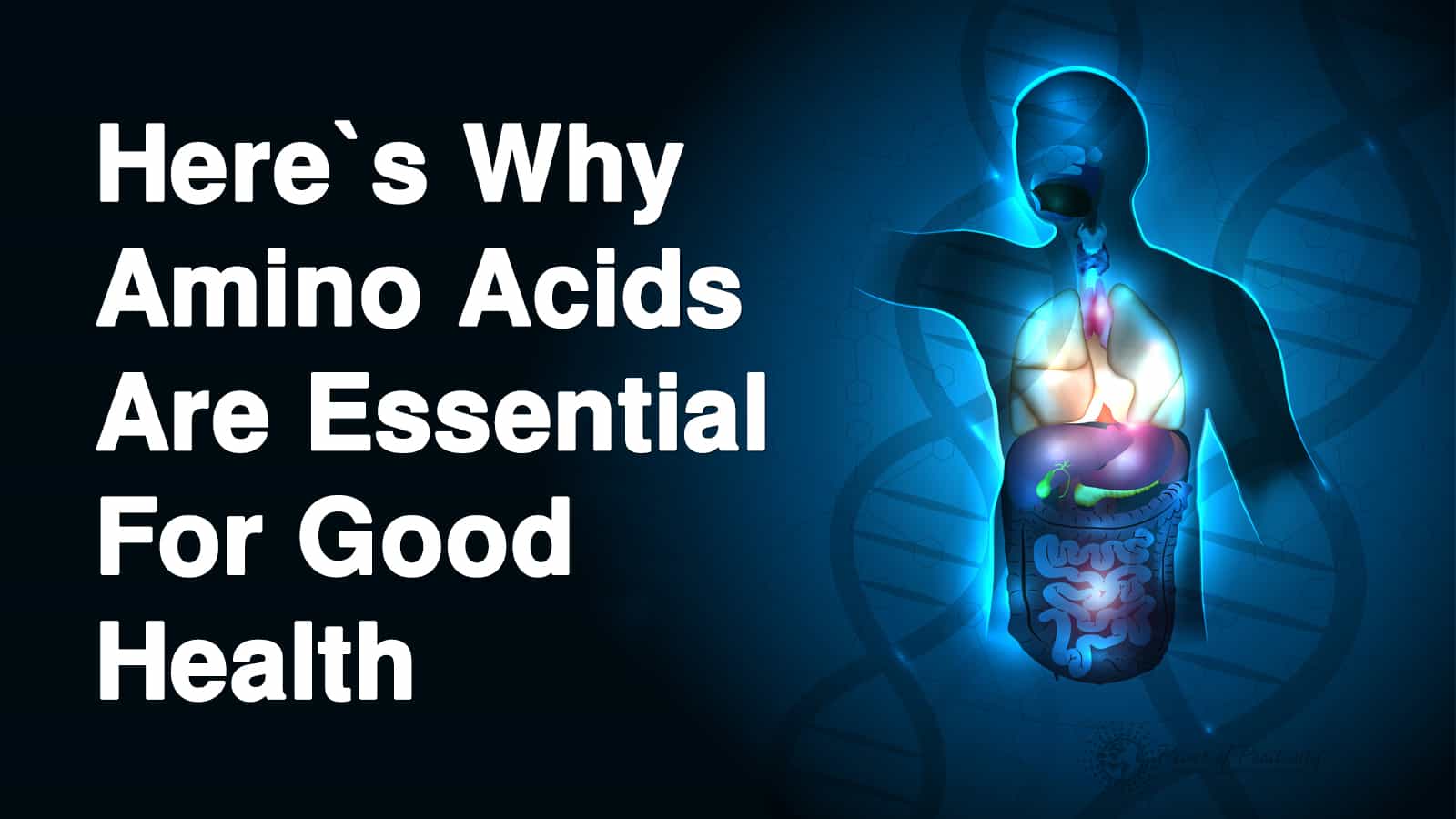The vital importance of amino acids cannot be overemphasized. Quite simply, amino acids are the basis – the building blocks – of all life processes. More specifically, amino acids act as catalysts, allowing the development of proteins within billions of individual cells.
The human body requires twenty types of amino acids to produce protein adequately. Amino acids are categorized as either essential or non-essential. Non-essential amino acids are those the body can naturally synthesize, requiring only sufficient amounts of carbon, hydrogen, nitrogen, and oxygen. Essential amino acids are acquired through food, as the body either cannot produce them or produces them at insufficient levels.
Amino acids play central roles both as building blocks of proteins and as intermediates in metabolism. – The University of Arizona, Department of Biology
What Are the Amino Acids?
Essential amino acids are: histidine, isoleucine, leucine, lysine, methionine, phenylalanine, threonine, tryptophan, and valine.
Non-essential amino acids are made up of the following: alanine, arginine, asparagine, aspartic acid, cysteine, glutamic acid, glutamine, glycine, proline, serine, and tyrosine.
A vast amount of research has confirmed indispensable health properties. Likewise, research has been conducted explaining the dangers of low levels. In terms of treatment, these nutrients improve various health conditions.
This article focuses on the health benefits of amino acids. Further, we’ll go over some good dietary sources of amino acids.
Seven Reasons You Need to Add Amino Acids to Your Diet
1. Improves brain function
Amino acids – and thereby proteins – are critical to healthy brain function. The brain synthesizes arginine, histidine, tyrosine, and tryptophan to (among other things) balance various neurotransmitters (i.e. dopamine, serotonin, norepinephrine). Maintaining healthy balances of these chemicals helps promote normalized cognitive abilities, particularly during environmental and psychological distress periods.
2. Detoxifies the body
Our body relies on a healthy and functioning liver to eliminate harmful toxins. Amines such as arginine, ornithine, and glutamine help stimulate liver detoxification actions – eradicating toxins that threaten our overall health. These amines also help to promote the expedited healing of wounds.
(Important side note: overconsumption of amines can result in excessive production of liver enzymes – an inadvertency that can result in liver damage. When undergoing any detox regimen, it is recommended to seek the advice of a licensed medical professional.)
3. Enhances mood
Often, mood swings result from too much stress and insufficient recovery time. This often happens when we perform demanding work and process streams of information without allocating proper time for rest or sleep.
While this may sound oversimplified (and obvious!), it turns out that deficient amino acid levels may exacerbate such mood swing episodes.
Conversely, carnitine and other amines may help balance a brain that is often out of sync – a common byproduct of internal and external stressors. For example, GABA – an amino acid and ultra-popular supplement – inhibits erratic neurotransmitter activity in the brain. The result? Feelings of sedation and well-being.
4. Improves sleep quality
Certain amino acids help to promote sleep by counteracting the cellular toxin ammonia. The breakdown of proteins forms ammonia stunts cellular energy production and. Sleeplessness can result when this breakdown mechanism adversely impacts certain cognitive functions, disrupting our internal sleep/wake cycle.
The amines arginine, glutamine, and ornithine have properties that can assist the body in eliminating ammonia, which may improve sleep quality.

5. Reduces or eliminates stress
Glutamine is considered among the most important amino acids. Experiments have demonstrated drastic reductions in glutamine levels during physical and/or mental episodes of tension, strain, and stress. Physiologically, ingestion or supplementation of glutamine stabilizes cells of the immune and gastrointestinal systems. This effect strengthens the body’s defense mechanisms, helping to prevent and counteract various symptoms of stress.
6. Promotes muscle growth
Since amino acids are protein’s foundational components, this benefit is no surprise. In addition to promoting muscle growth, they suppress mechanisms that cause muscle tissue deterioration.
One notable amino acid, glycine, has even been shown to help maintain muscle mass later in life. When satisfactory levels penetrate the muscles, overall endurance, strength, and other performance capabilities often improve. This is the primary reason elite athletes and bodybuilders prioritize the consumption of amino acids.
7. Slows and thwarts aging
Ah, yes…we can see your eyes getting extra wide now. And it’s true: regular, adequate ingestion of amino acids can slow the aging process.
The reasons for this are mostly cumulative, and here’s why. As mentioned, they play an essential role in preventing or countering the effects of stress, producing myriad benefits: sharper cognition, healthier skin, more defined muscles, better sleep, improved mood, etc.
Additionally,they strengthen the immune and digestive systems. As a result, we can ward off potentially-harmful health conditions – many of which indirectly age us, both in mind and body.
Final Thoughts: Know Good, Healthy Sources of Amino Acids
There are plenty of foods that are high in amino acids. Odds are you can find something on this list that satisfies your palette.
Here are a few:
- Plant-based sources: tofu, quinoa, soy, and soybeans. Bragg’s Liquid Aminos is also an excellent product for this.
- Lean meat: ham, pork, and beef.
- Poultry and seafood: chicken, turkey breast, halibut, cod, tilapia, flounder, and perch.
- Eggs and low-fat dairy products.





















